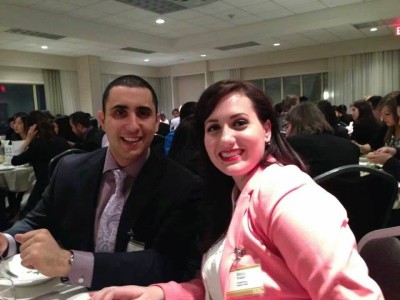STORY BY AMANDA SPILKER
Sheridan took part for the first time in the Inter-Collegiate Business Competition and came away with second place earlier this month.
Placing second in the Ethics category, Sheridan students, Antoine Sarhan and Erica Forest competed against 12 others in the final five-hour case analysis.

“It was based on a real company,” said Erica Forest, second-year Global Business Management. “So because we had the ethical case we had to find an ethical solution but still maintain a business perspective.”
The ICBC, established in 1979, has eight competition categories: Accounting, Business Policy, Ethics, Debating, Finance, Human Resources, Marketing, and Management of Information Systems.
It is held every January at Queen’s University and is the longest running student-run undergraduate case competition in Canada, attended by students from top business schools world-wide, and this year Sheridan was among them.
This was the first year that Sheridan was invited to compete, sending two teams of two and one team of three.
“I wanted to get more involved with the school and business because now doing well in courses isn’t enough to get you a job later on, you need to be involved and to have experience,” said Forest.
To have a chance to compete in the final round at Queen’s, students must first participate in the preliminary round where they would compile a case solution in their category and submit it to a panel of judges to review.
Out of 38 people, 12 are chosen to move to the finals.
“This is Sheridan’s first time competing in this competition, no one was really expecting anything out of it, it was just a learning experience,” said Antoine Sarhan, Global Business Managament.
In the final round, students are given no time to prepare, they are presented with a case and have a set time to compile a solution and present it to a panel of judges, some who represented companies like Google, Tim Hortons and Target Canada.
An example of a case that they would have had to analyze: a few years ago a university accepted an 8 million pound donation from the son of a dictator who supports his father’s actions, now they must figure out what to do with 8 million British pounds even though five have already gone into leukemia research and the other three would be used for scholarships.
The students must then find key issues, raise alternatives, find out who the stakeholders are and make an operation plan to present to the judges.
Sarhan and Forest tied for second with the University of Hong Kong.
“It was a shock, then after that just happiness and being proud of being a Sheridan student, showing that we can compete with the universities of Canada since we placed above them,” said Sarhan. “It just felt really good and it proved to me how good a school Sheridan is.”
